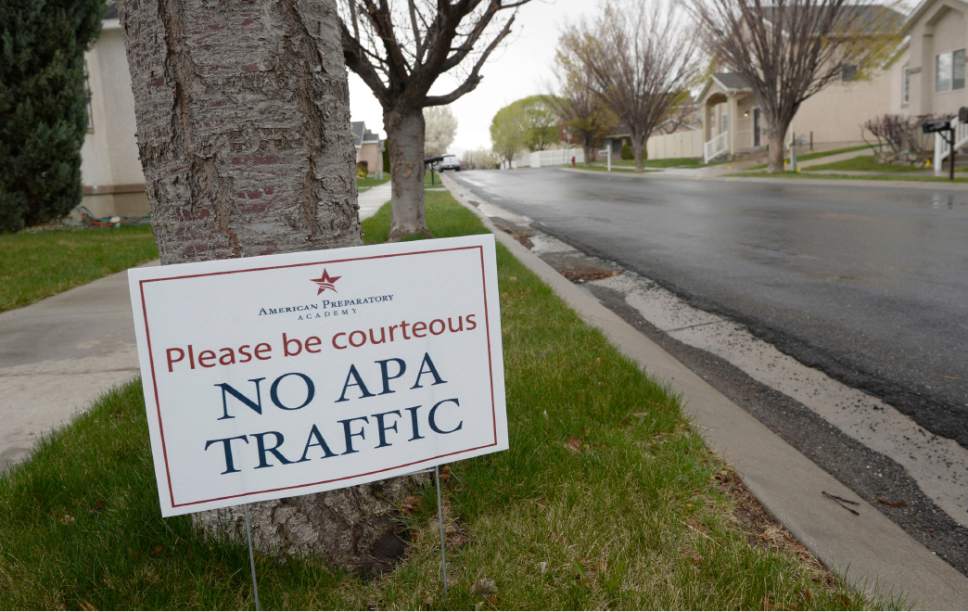This is an archived article that was published on sltrib.com in 2017, and information in the article may be outdated. It is provided only for personal research purposes and may not be reprinted.
Charter schools in Utah have been a good experiment. Mostly. Independence from overly regulated and underfunded school districts allow charter schools to innovate in areas of administration and curriculum. The purpose, of course, is to cut costs while improving education.
But when a charter school instead combines the worst of government overreach with for-profit interests, the experiment fails.
The bully on this playground is the American Preparatory Academy in Draper. In January the APA started construction on a campus in Draper but failed to secure access to its parking lot, which is blocked by a strip of land now mired in an ownership dispute. Compounding this colossal oversight, APA started construction without the state school board's necessary approval of site plans.
To fix its poor planning, APA's governing board Utah Charter Academies tried to seize the land strip as a government actor under the doctrine of eminent domain. Eminent domain allows a government entity to take control and ownership of private property in the name of public use. The problem is, of course, that Utah Charter Academies is not a government entity.
After this first attempt at seizing the land failed, APA asked the state Charter School Board to condemn the land strip for its use.
To its credit, the CSB voted to stay out of the dispute.
State charter school law provides that the CSB may contract, sue and be sued, and provide administrative services to charter schools in the state. The enabling legislation does not authorize the CSB to act in place of the Utah Board of Education to condemn land it deems necessary for public use. Charter schools are considered public schools but are specifically subject to the power of the UBE.
Ensuring attendance in, or even existence of, a charter school is not a legitimate public purpose.
A charter school with the power to condemn private property twists the purpose, and extends the abuses, of the already-suspect takings power.
A charter school company should not be able to build a school without adequate facilities and planning and without necessary approval, and then have the state school board fix its mess. The point of the charter school system is to encourage schools to save money while improving education, not to get the UBE bogged down in expensive litigation and unfair, and unconstitutional, treatment of private property owners.
The state school board should make APA go back to the drawing board for this experiment.



